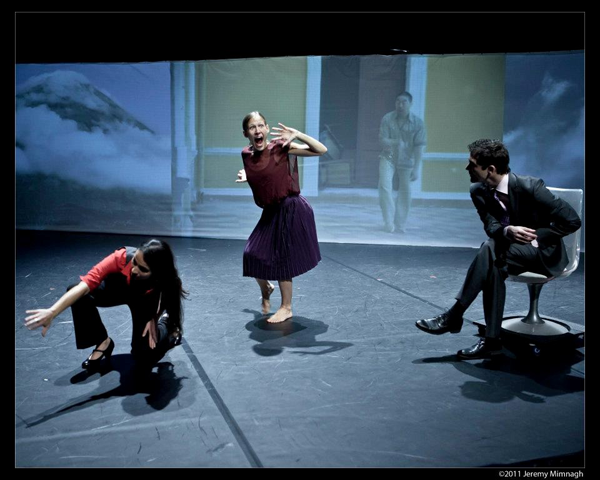Pointes, Politics and Meanings: Re-Reading Ballerinas as Embodied Translations of Modernity-Inspired Nationalisms
DOI:
https://doi.org/10.25071/1925-5624.37811Palavras-chave:
bale clássico, nacionalismo, traduções corporificadas, gênero, corporeidadeResumo
O balé clássico produz sentido com a plateia através de uma estética que é produzida por meio de interseções de discursos de raça, gênero e sexualidade. Os modos de interação específicos desses discursos encontram-se em nacionalismos inspirados na modernidade. Sendo assim, os corpos de bailarinos que produzem, sustentam e perpetuam essa estética permanecem inscritos nesses discursos. Este artigo argumenta que corpos de bailarinos são exatamente isto: traduções corporificadas de nacionalismos inspirados na modernidade. Baseado na ideia de reescrita de Lefevre, o artigo demonstra como balés clássicos se manifestam como reescritas de forças discursivas externas sobre corpos de bailarinos clássicos e mostra também que as estéticas dentro das quais esses corpos se identificam são viabilizadas por entendimentos discursivos de raça, gênero e sexualidade inerentes à modernidade.Referências
“2012/2013 Season.” The National Ballet of Canada. n.d. http://national.ballet.ca/performances/season1314/ (August 19, 2013).
Anderson, Benedict. Imagined Communities. New York: Verso, 2006. Print.
Bassnett, Susan and André Lefevere. “Introduction: Proust’s Grandmother and the Thousand and One Nights: The ‘Cultural Turn’ in Translation Studies.” Translation, History and Culture. Eds. Susan Bassnett and André Lefevere. New York: Cassell, 1995. 1-13. Print.
Brown, Wendy. States of Injury Power and Freedom in Late Modernity. Princeton, NJ: Princeton University Press, 1995. Print.
Butler, Judith. Gender Trouble Feminism and the Subversion of Identity. New York: Routledge, 1999. Print.
Chakrabarty, Dipesh. Habitations of Modernity Essays in the Wake of Subaltern Studies. Chicago: University of Chicago Press, 2002. Print.
Chakrabarty, Dipesh. Provincializing Europe Postcolonial Thought and Historical Difference. Princeton, NJ: Princeton University Press, 2000. Print.
Croft, Clare. “Ballet Nations: The New York City Ballet’s 1962 US State Department-Sponsored Tour of the Soviet Union” Theatre Journal 61 (2009): 421-442. Print. DOI: https://doi.org/10.1353/tj.0.0199
Fisher, Jennifer. “Tulle as Tool: Embracing the Conflict of the Ballerina as Powerhouse” Dance Research Journal 39.1 (2007): 2-24. Print. DOI: https://doi.org/10.1017/S0149767700000048
Fisher, Jennifer. Nutcracker Nation. New Haven, CT: Yale University Press, 2003. Print.
Foster, Susan. “The Ballerina’s Phallic Pointe.” The Feminism and Visual Culture Reader. Ed. Amelia Jones. New York: Routledge, 1996. 434-454. Print
Foucault, Michel. “Les mailles du pouvoir” Dits et écrits II, 1976-1988. 1994. Eds. Daniel Defert et al. Paris: Gallimard, 2001. 1001-1020. Print. DOI: https://doi.org/10.14375/NP.9782070739875
Foucault, Michel. Discipline and Punish: The Birth of the Prison. Trans. Alan Sherman. New York: Vintage Books, 1991. Print.
Foucault, Michel. L’Ordre du discours. Paris: Gallimard, 1971.Print.
Gaiser, Carrie. “Caught Dancing: Hybridity, Stability and Subversion in Dance Theatre of Harlem’s Creole Giselle.” Theatre Journal 58 (2006): 269-289. Print. DOI: https://doi.org/10.1353/tj.2006.0111
Gilroy, Paul. The Black Atlantic: Modernity and Double Consciousness. Cambridge, MA: Harvard University Press, 1993. Print.
Gilroy, Paul. There Ain’t No Black in the Union Jack: The Cultural Politics of Race and Nation. Chicago: University of Chicago Press, 1987. Print.
Greenfeld, Liah. Nationalism: Five Roads to Modernity. Cambridge, MA: Harvard University Press, 1992. Print.
Halberstam, Judith. Female Masculinity. Durham, NC: Duke University Press, 1998. Print.
Jakobson, Roman. “On Linguistic Aspects of Translation.” The Translation Studies Reader, 2nd Edition. Ed. Lawrence Venuti. London: Routledge, 2004. 138-43. Print.
Juhasz, Susan. “Queer Swans: Those Fabulous Avians in Swan Lakes of Les Ballets Trockadero and Matthew Bourne” Dance Chronicle 31 (2008): 54-83. Print. DOI: https://doi.org/10.1080/01472520701860623
Kealiinohomoku, Joann. “An Anthropologist Looks at Ballet as a Form of Ethnic Dance.” What is Dance. Eds. Roger Copeland and Marshall Cohen. New York: Oxford University Press, 1983. 533-549. Print.
Lee, Carol. Ballet in Western Culture: A History of its Origins and Evolution. New York: Routledge, 2002. Print.
Lefevere, André. Translation, Rewriting and the Manipulation of Literary Fame. London: Routledge, 1992. Print.
Les Ballets Trockadero de Montecarlo. Les Ballets Trockadero de Montecarlo, n.d. Web. 20 Mar. 2013.
McCarthy-Brown, Nyama. “Dancing in the Margins: Experiences of African American Ballerinas.” Journal of African American Studies 15 (2011): 385-408. Print. “Mixed Programme.” Canada’s Royal Winnipeg Ballet. n.d. http://www.rwb.org/mixedprogramme (August 19, 2013).
Monroe, Raquel. “‘I Don’t Want to do African…What About My Technique?’: Transforming Dancing Places into Spaces in the Academy.” The Journal of Pan African Studies 4.6 (2011): 38-55. Print.
Muñoz, José. Disidentifications: Queers of Color and the Performance of Politics. Minneapolis: University of Minnesota Press, 1999. Print.
Oliver, Wendy. “Reading the Ballerina’s Body: Susan Bordo Sheds Light on Anastasia Volochkova and Heider Guenther.” Dance Research Journal 37.2 (2005): 38-54. DOI: https://doi.org/10.1017/S014976770000855X
Pateman, Carole. The Sexual Contract. Stanford, CT: Stanford University Press, 1988. Print.
Rancière, Jacques. The Politics of Aesthetics. New York: Continuum, 2004. Print.
Schwartz, Selby Wynn. “The Politics of Dancing: Les Ballets Trockadero de Monte Carlo” Forum 4 (Spring 2007): n.pag. Web. 20 Mar. 2013.
Stoneley, Peter. A Queer History of the Ballet. London: Routledge, 2007. Print. DOI: https://doi.org/10.4324/9780203968499
Thobani, Sunera. Exalted Subjects: Studies in the Making of Race and Nation in Canada. Toronto: University of Toronto Press, 2007. Print.
Tymoczko, Maria. “Translation in Oral Traditions as a Touchstone for Translation Theory and Practice.”Translation, History and Culture. Eds. Susan Bassnett and André Lefevere. New York: Cassell, 1995. 46-55. Print.
Downloads
Como Citar
Edição
Seção
Licença

This work is licensed under a Creative Commons Attribution-NonCommercial-NoDerivs 3.0 Unported License.

